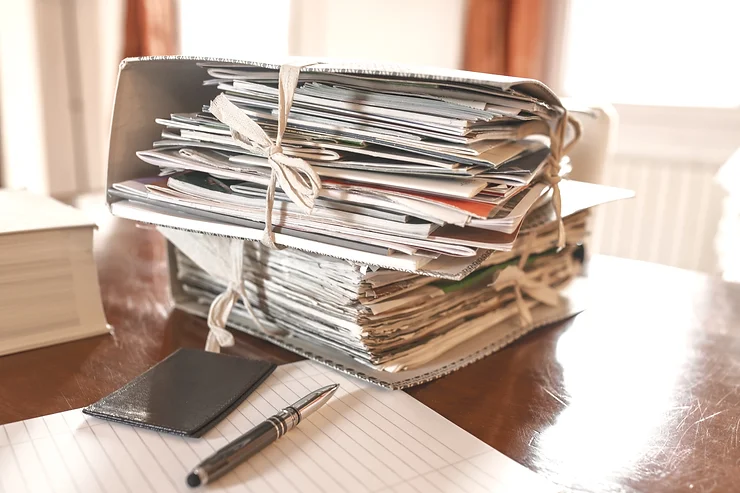Attention Deficit Hyperactivity Disorder (ADHD) affects an estimated 5% of children between the ages of 3 and 17, according to the Centers for Disease Control and Prevention (CDC).
ADHD is a common mental health disorder that many families grapple with, but what about its genetic component? Have you ever heard someone refer to ADHD, or Attention Deficit Hyperactivity Disorder, as being “in the genes”?
While it’s true that genetics often play a role in mental health disorders like ADHD, there is much more behind this diagnosis than just passing on a genetic trait from parent to child. This blog post will take a deep dive into the science of genetics and its involvement in understanding and treating this disorder. Let’s start exploring.
The Evidence for Hereditary Factors

The evidence for hereditary factors being involved in ADHD can not be ignored. According to The American Academy of Child & Adolescent Psychiatry (AACAP), a careful review of family medical histories is often necessary to make an ADHD diagnosis because this disorder tends to run in families.
It has been widely accepted among researchers that genetics play a role in the development of attention deficit hyperactivity disorder. Multiple studies have looked at the issue from different angles, but one large study by Swedish scientists found that genetic factors accounted for 70-80% of all cases of ADHD.
This study also showed that identical twins were more likely to both have ADHD than fraternal twins, suggesting that there was a stronger genetic link between identical twins than fraternal twins.
The amount of influence from genetics may vary from person to person, but it is clear that there are numerous individuals that share the same characteristics and symptoms due to the genetic predisposition for this disorder. The potential genetic basis of ADHD underscores the importance of acknowledging any existing family patterns when making accurate diagnoses and providing effective treatment plans.
The evidence that supports a genetic component to Attention-Deficit/Hyperactivity Disorder (ADHD) is growing, as science further explores the complexity of this developmental disorder. The past two decades have seen conducted medical studies that analyze brain scans, compare responses in families with diagnoses of ADHD, and measure genetic markers. Other studies have shown similar results and have indicated that certain gene mutations may be associated with an increased risk of developing this condition.
The studies are suggesting a strong hereditary component; however they caution that while genetics may certainly play a role in determining susceptibility to ADHD, it is much more likely to be an interaction between genes, environment and other factors that contribute towards a diagnosis.
Environmental Factors

In order to understand an ADHD diagnosis, it is important to address the role of genetics and potential environmental factors.
It is true that genetics can play a role in the development of Attention Deficit Hyperactivity Disorder. However, research has also shown that Environmental Factors such as diet, exposure to toxins, sleep deprivation and social stressors may also contribute to one’s predisposition for developing ADHD.
Stressful or chaotic home environments can increase the likelihood of developing symptoms. Additionally, environmental toxins such as lead exposure or prenatal drug use can increase the risk for developing symptoms of ADHD as well.
While some environmental factors can increase your likelihood of developing this disorder, it is important to remember that not everyone with these environmental risk factors will end up having it.
Thus, when looking at the question of whether or not ADHD is genetic, it is best to consider not only the genetics involved but also environmental factors that could potentially play a role in its onset. A thorough look into all contributing parts allows us to have a more complete comprehension of what might make up an individual’s ADHD diagnosis
Environmental factors continue to be studied for their potential contribution to diagnosis and further understanding about how best to support individuals with this condition. Educators should be aware of these external factors when considering how best to assist an individual managing the symptoms of ADHD or other mental health challenges.
The complex mix of genetics and environment on development should not be taken lightly – both areas are important when seeking a diagnosis and information about how best to help those living with this disorder.
The Role Of Genetics In Treatment

As research into Attention Deficit Hyperactivity Disorder (ADHD) continues to advance, the medical community is becoming increasingly aware of the role genetics play in diagnosis and treatment.
Being able to identify genetic factors can help doctors tailor treatments to fit each individual patient’s needs more effectively.
The consensus amongst leading medical evaluators is that although environment and psychological factors can influence the onset or manifestation of ADHD symptoms, a gene-based component plays a significant role.
The implications of this are twofold: while many underlying environmental factors remain identifiable risk factors in an individual’s development of ADHD, those same people are able to seek out supportive treatments tailored to their genetic make up.
In other words, genetics not only play a role in diagnosing ADHD but also in providing personalized treatment for each individual’s unique needs.
Conclusion:
To sum up, it’s clear that ADHD is far more complex than a single gene. Genes do play a role in the cause of ADHD, but other environmental factors should not be discounted. And while this complexity makes it harder to definitively answer some questions about the genetic underpinnings of ADHD diagnosis and treatment, understanding how genes and environment intersect is largely important for diagnosing and treating this disorder effectively.
Overall, research has indicated that genetics are an important factor in determining whether or not someone develops Attention Deficit Hyperactivity Disorder (ADHD). However, environmental factors such as stress or chaotic home environments can also increase the risk for developing symptoms associated with this condition.
This is why it is so important to work with a health care professional on an individualized treatment plan. For those of you who are looking to learn more, we urge you to take advantage of our free consultation service— combining my experience and education, I can offer personalized advice backed by evidence-based research from experts in the field.
If this has helped educate you in any way, we would love to hear from you. Leave a comment below or click the link to take advantage of a FREE consultation today!
